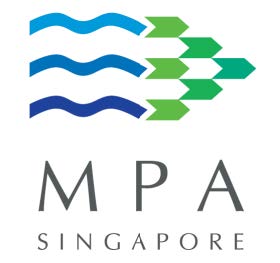11 Proposals Selected to Advance Electric Harbour Craft Designs in Singapore

Participants had submitted technically strong e-HC designs, including the use of optimised aluminium hull form, high energy density batteries with active liquid cooling, battery thermal detection and protection system, among others. They had also stated in their proposals that the total cost of ownership for e-HC can be comparable to a conventional harbour craft. While e-HC currently have higher upfront capital cost due primarily to the higher cost of the batteries and associated systems, these can be mitigated by energy cost savings from operating the more energy-efficient e-HC, reduced maintenance cost and operational downtime.
11 proposals selected for further cost reduction, design enhancements and demand aggregation
the participants can progressively market these enhanced e-HC reference designs to interested parties and aggregate production demand from the industry. The use of ready reference designs and production at scale is expected to help reap cost savings for companies planning to make the transition to e-HCs.
Of the 11 e-HC designs, six have secured the relevant technical approvals from Classification Societies such as American Bureau of Shipping, Bureau Veritas, China Classification Society, DNV and RINA, and will be seeking to aggregate industry demand for their designs. The six designs submitted by the Coastal Sustainability Alliance, marinEV1, and Pyxis Maritime Pte Ltd, demonstrate strong understanding of Singapore’s requirements in areas including battery specifications, digital and cyber systems, training requirements and development of local capability. These participants will be working directly with MPA and its researchers over the next two to six months to optimise and validate their e-HC designs, depending on their current maturity and readiness.
The remaining five proposals were submitted by CAEV+ Consortium2, China Everbright Environment Group Limited, Cyan Renewables Consortium3, and Gennal Engineering Pte Ltd. MPA will work with these participants, together with the various IHLs and RIs, to further develop their e-HC designs. The scope of enhancements will include optimisation of the vessel hull and electrical systems design, the design of fire-resilient battery room, and cyber health monitoring system, to strengthen the vessels’ energy efficiency and safety. Similarly, these designs can be progressively implemented for demand aggregation from the industry.
Other initiatives to support the harbour craft sector
MPA had recently announced the three vessel charging concepts to be piloted in Singapore following the call for proposal in August 2023 to develop, operate, and maintain e-HC charging points in Singapore. Insights from the data collected during the pilot will contribute toward the development of a national e-HC charging infrastructure masterplan, implementation plan, and national standards for e-HC charging infrastructure. MPA is also working with Enterprise Singapore, industry stakeholders and academia to develop a Technical Reference (TR) for e-HC charging. The draft TR is estimated to be ready for public consultation in 2Q 2024.
In October 2023, MPA invited financial institutions and intermediaries to submit financing and insurance solutions through an EOI to help early movers with the higher upfront cost of owning e-HCs. The EOI closed on 19 December 2023 and MPA is currently evaluating the proposals submitted. These solutions will address the current gaps in the financing and insurance landscape, support the rollout of these new vessel designs and grow the maritime finance and insurance market.
For biofuels, blends of up to B50 are already commercially available. MPA is working with industry to develop the standards for up to B100. New harbour craft from 2030 would have the choice for their engines to be B100 biofuel capable or be compatible with net zero fuels such as hydrogen when it is more readily available.
Source:MPA
